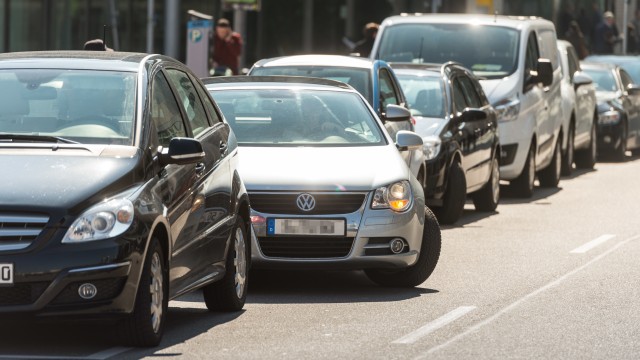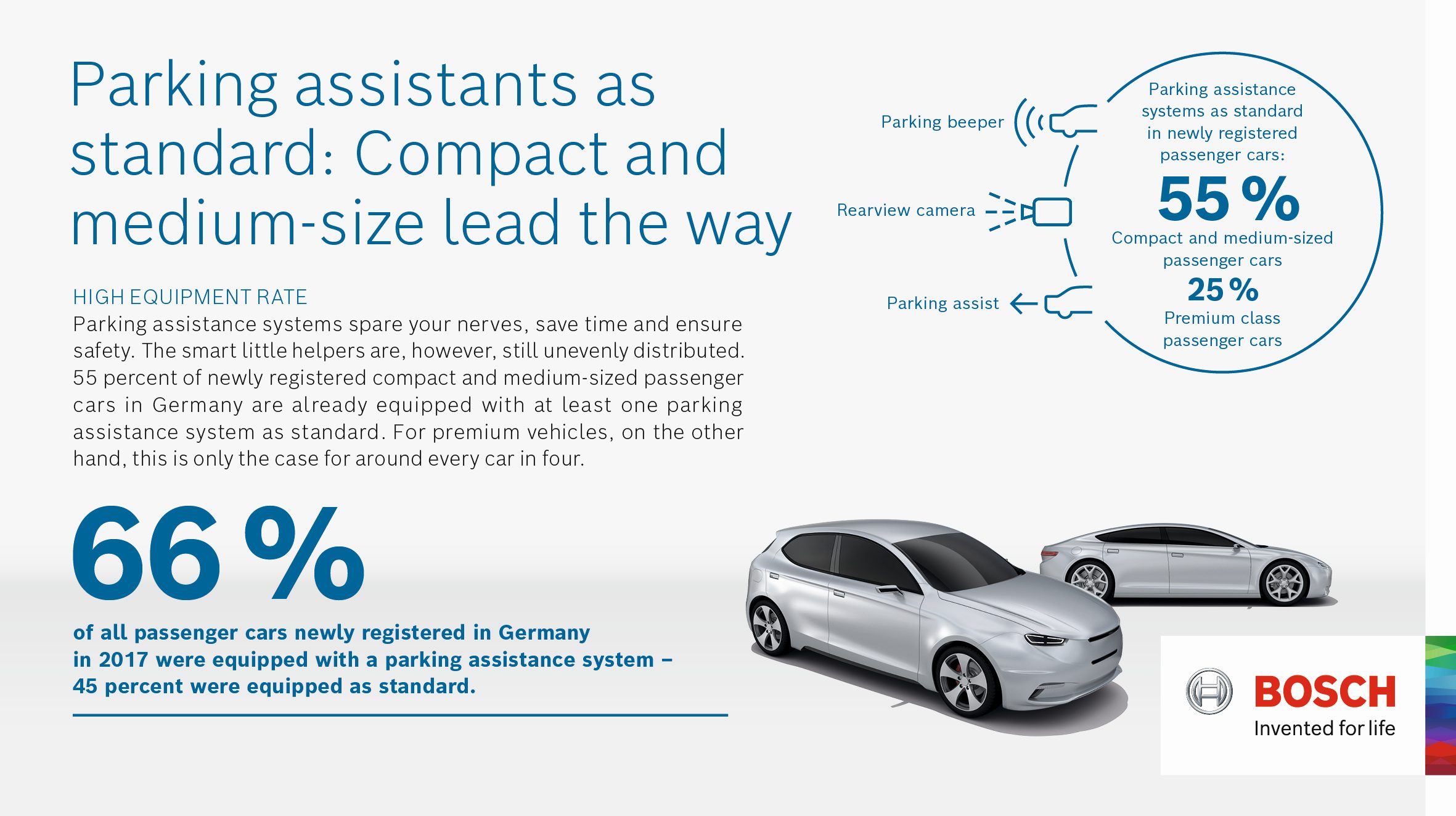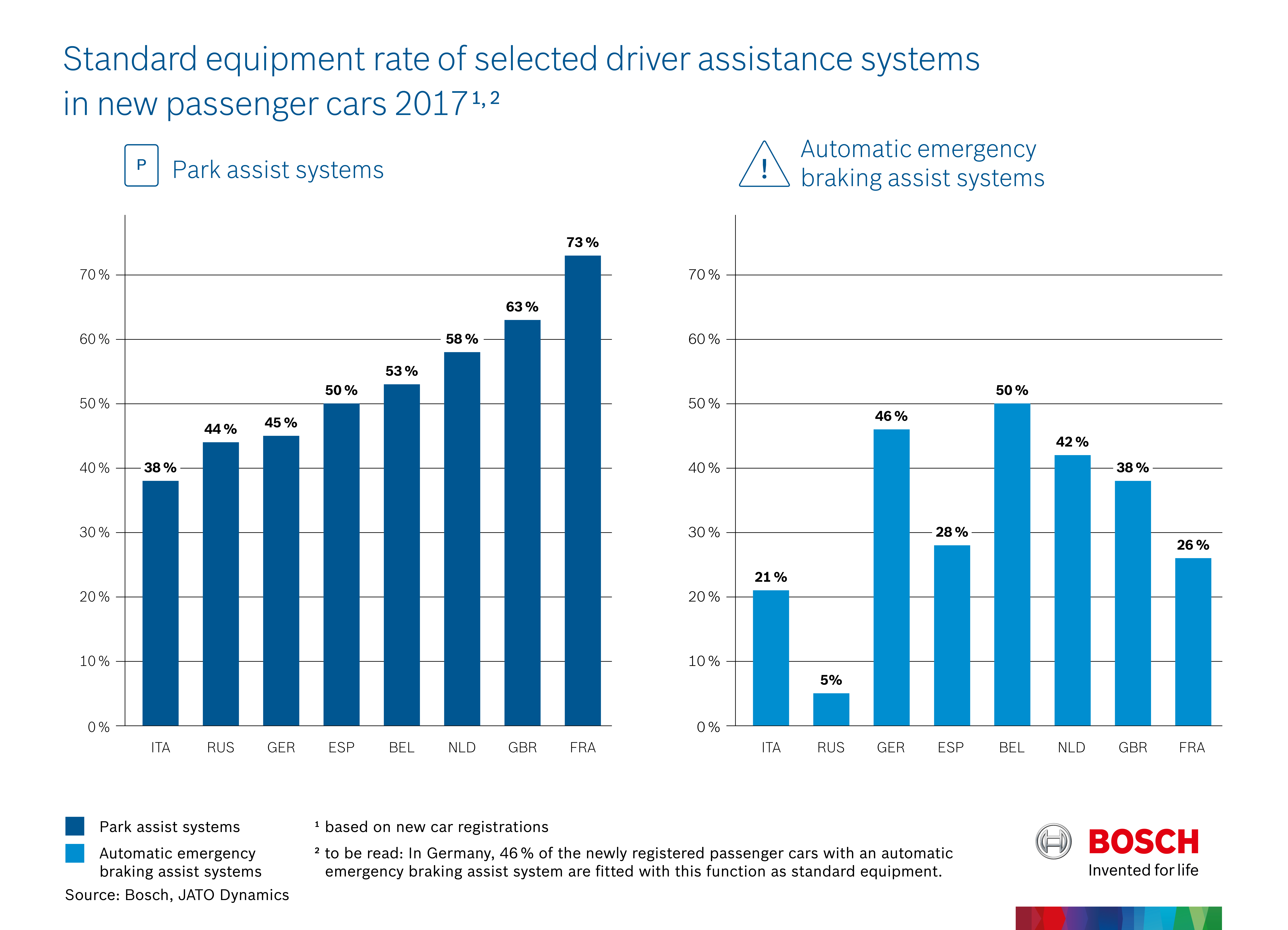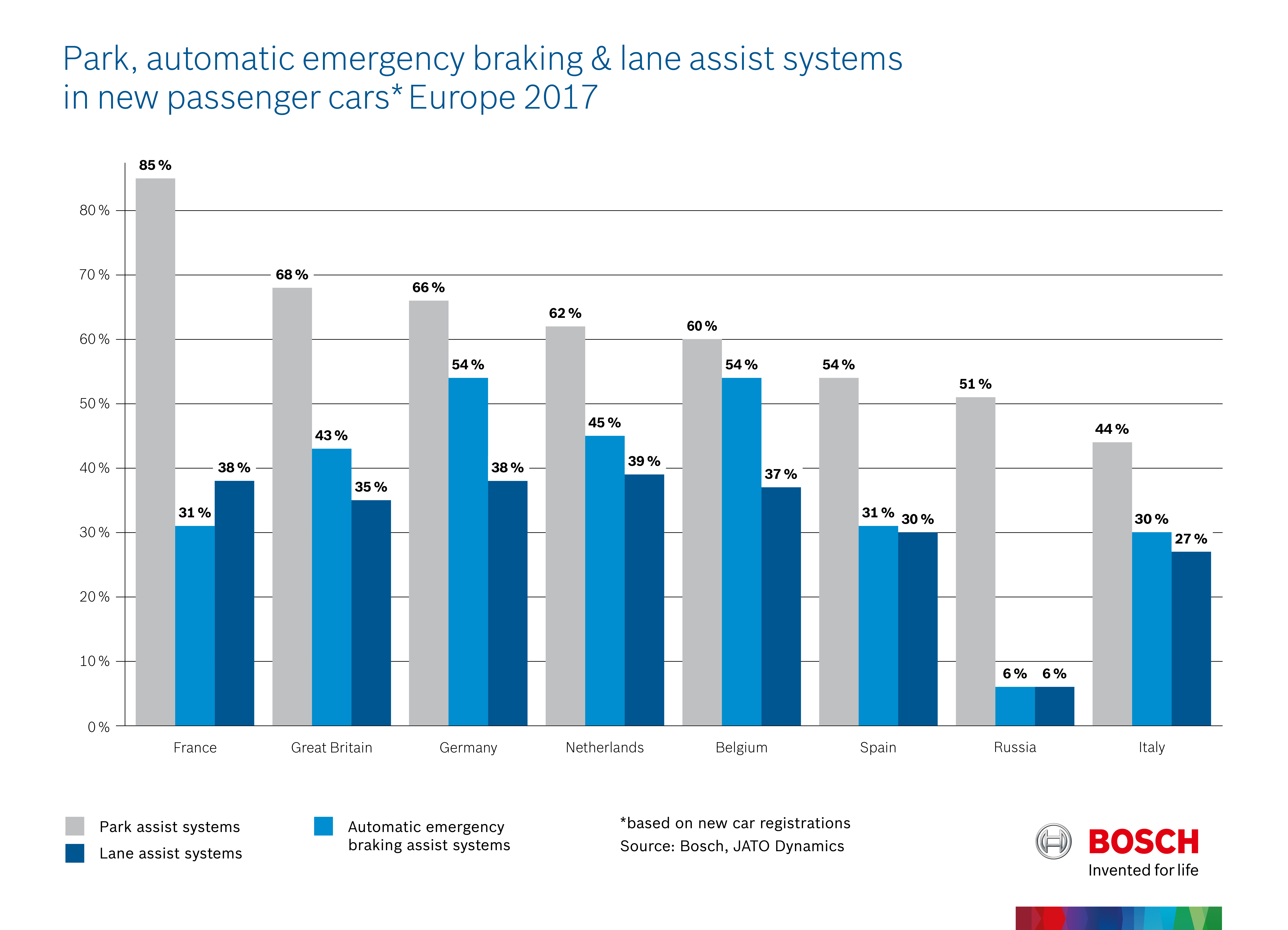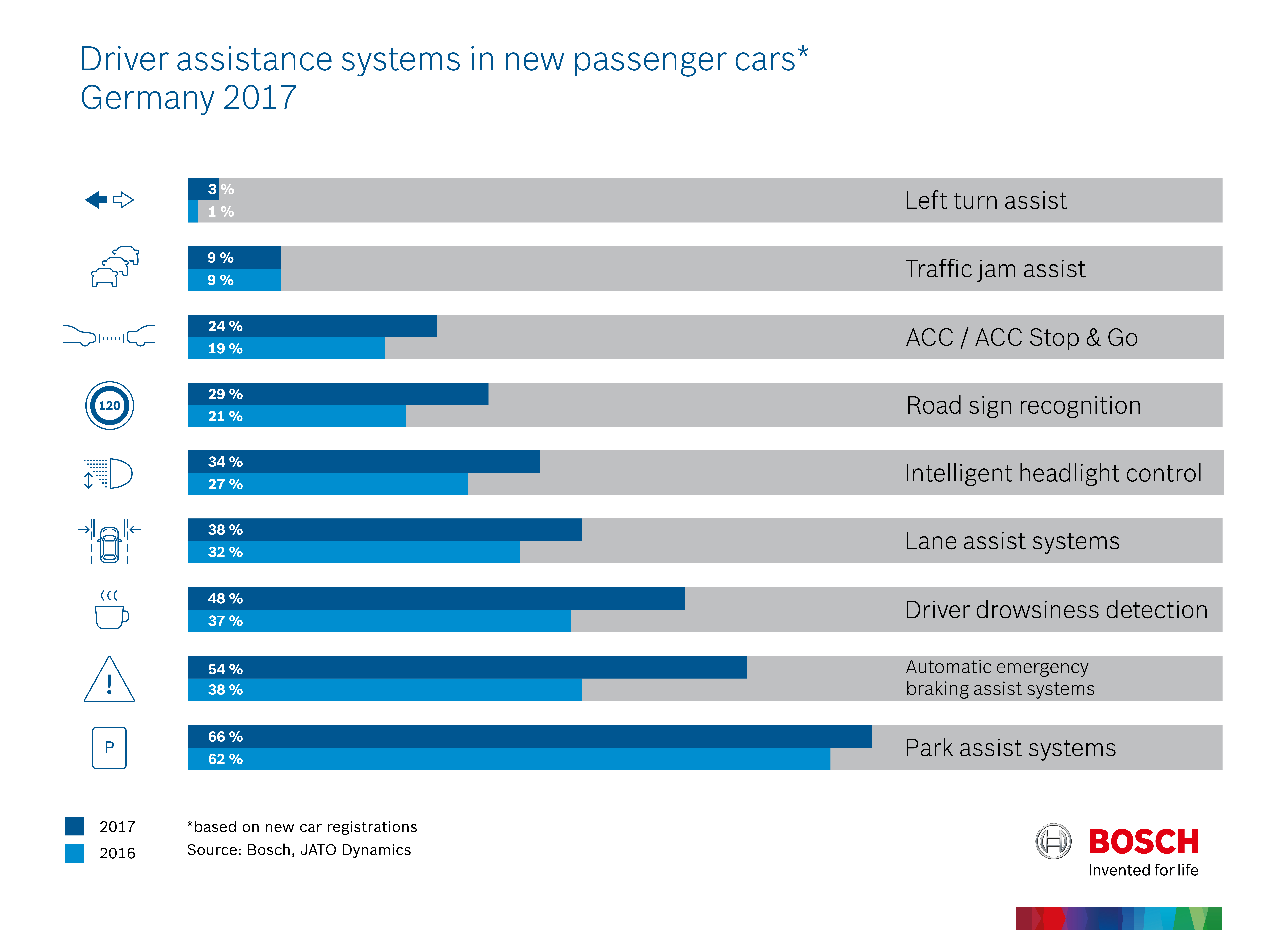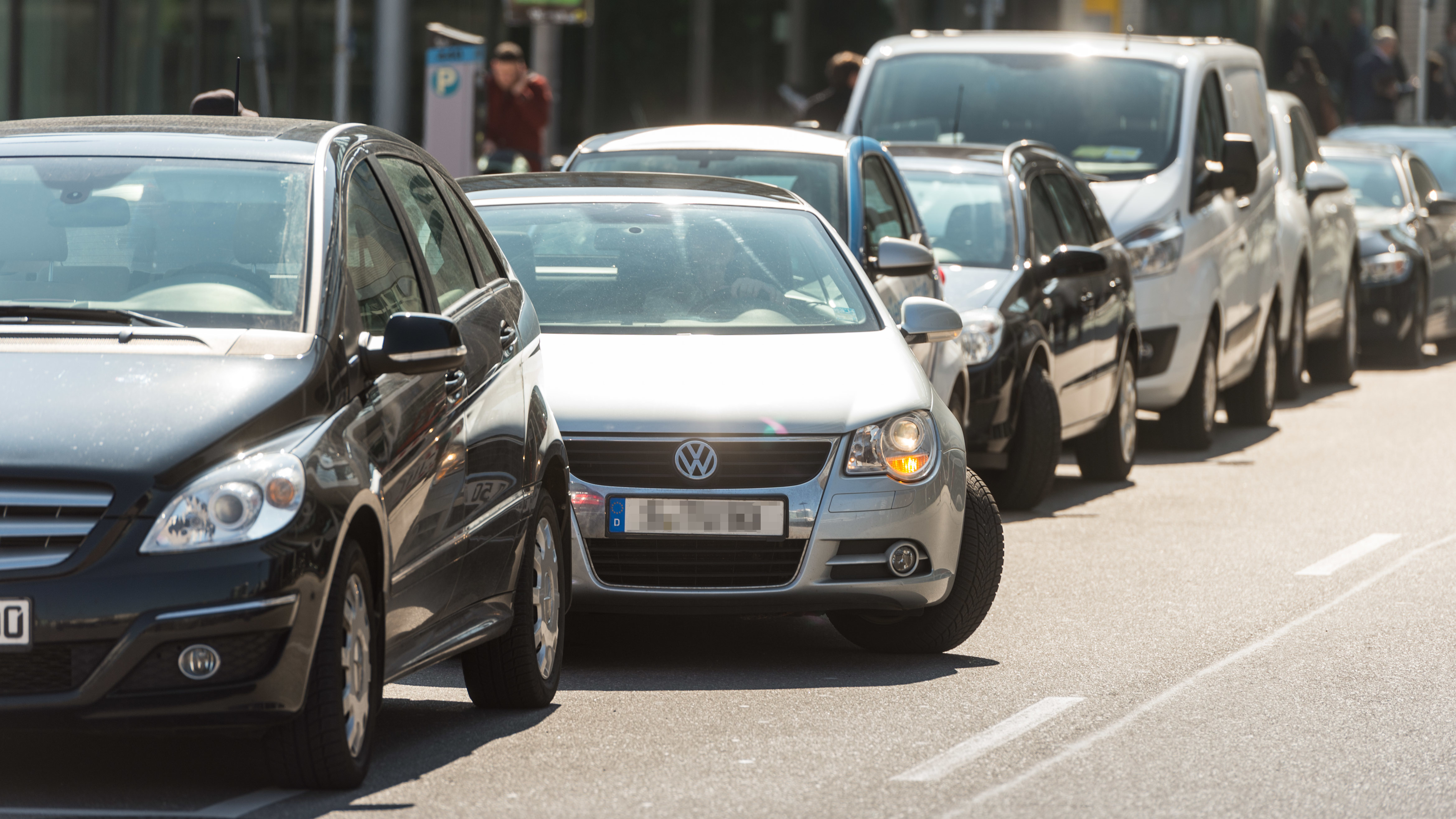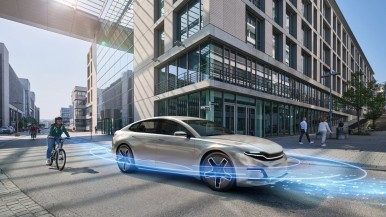Stuttgart, Germany – Remote parking, automatic lane-keeping support, drowsiness detection: these are just some of the many features that buyers of new cars no longer want to do without. Installation rates of driver assistance systems are rising steadily. “More and more car buyers want a vehicle that anticipates and even intervenes in driving maneuvers,” says Dr. Dirk Hoheisel, member of the Bosch board of management. Surprisingly, it’s not premium vehicles that most frequently feature smart parking as standard equipment. Far from it: when it comes to such systems, compact and midsize cars are better equipped. These are the findings from a Bosch evaluation of the 2017 statistics on newly registered cars. Whether proximity alarms, parking assists, or reversing cameras, 55 percent of newly registered compact and midsize cars in Germany come equipped with at least one parking assistance system as standard. In contrast, this figure is only about 25 percent for premium vehicles. Overall, 45 percent of newly registered cars across all vehicle classes have at least one parking assistance system fitted as standard.
Click here for an overview of all Bosch driver assistance systems.
Mobility Solutions is the largest Bosch Group business sector. According to preliminary figures, it generated sales of 47 billion euros in 2018, and thus contributed 60 percent of total sales from operations. This makes the Bosch Group one of the leading automotive suppliers. The Mobility Solutions business sector pursues a vision of mobility that is accident-free, emissions-free, and stress-free, and combines the group’s expertise in the domains of automation, electrification, and connectivity. For its customers, the outcome is integrated mobility solutions. The business sector’s main areas of activity are injection technology and powertrain peripherals for internal-combustion engines, diverse solutions for powertrain electrification, vehicle safety systems, driver-assistance and automated functions, technology for user-friendly infotainment as well as vehicle-to-vehicle and vehicle-to-infrastructure communication, repair-shop concepts, and technology and services for the automotive aftermarket. Bosch is synonymous with important automotive innovations, such as electronic engine management, the ESP anti-skid system, and common-rail diesel technology.
The Bosch Group is a leading global supplier of technology and services. It employs roughly 412,000 associates worldwide (as of December 31, 2025). According to preliminary figures, the company generated sales of 91 billion euros in 2025. Its operations are divided into four business sectors: Mobility, Industrial Technology, Consumer Goods, and Energy and Building Technology. With its business activities, the company aims to use technology to help shape universal trends such as automation, electrification, digitalization, connectivity, and an orientation to sustainability. In this context, Bosch’s broad diversification across regions and industries strengthens its innovativeness and robustness. Bosch uses its proven expertise in sensor technology, software, and services to offer customers cross-domain solutions from a single source. It also applies its expertise in connectivity and artificial intelligence in order to develop and manufacture user-friendly, sustainable products. With technology that is “Invented for life,” Bosch wants to help improve quality of life and conserve natural resources. The Bosch Group comprises Robert Bosch GmbH and its roughly 490 subsidiary and regional companies in over 60 countries. Including sales and service partners, Bosch’s global manufacturing, engineering, and sales network covers nearly every country in the world. Bosch’s innovative strength is key to the company’s further development. At 136 locations across the globe, Bosch employs some 82,000 associates in research and development.
Additional information is available online at www.bosch.com, www.bosch-press.com.
